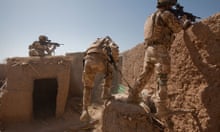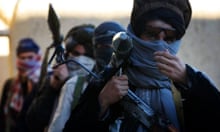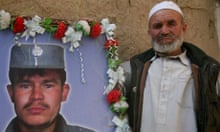America and Britain invaded Afghanistan 10 years ago, for reasons which were understandable, to wage a short war that was unavoidable. We stayed, through all the twists and turns imposed by events and by the incoherence of our own changing policies, for reasons which have become less and less understandable. The short war has become a long war which even now we do not know how to end. The ambition to remake Afghanistan on the western model has been silently discarded.
Optimistic generals have come and gone. Increasingly sceptical diplomats have filed ever more pessimistic dispatches to their capitals. Idealistic aid agencies have seen their work prosper, only to find it blighted by shifts in the balance between government and insurgents or undermined by corruption. Journalists have written their reports and made their television programmes. Mercenaries have made their money and consultants have taken their fees. The invaders have changed, and so have the Taliban in ways that are still evolving. There have been many books, some of them bestsellers, some of them illuminating, some meretricious, some self-serving. And, at home, endless comment. The only reason for adding to that quantity is that an anniversary of this kind has a sobering effect.
We should look back on what we have learned, and look forward to answer the question of what we should do now. What we have learned is that we hugely overestimated the capacity of our military, diplomatic and intelligence establishments to change other societies. The hubris was most evident in the United States, but it was not absent in Britain, nor, if more briefly, in the other countries which joined in the Afghan intervention. This overweening sense that anything and everything was possible goes back to the moment of triumphalism at the end of the cold war. Its military dimension was expressed in one rightwing intellectual's claim that the American empire had "appropriated the entire Earth and was ready to flood the most obscure areas of it with troops at a moment's notice".
The trouble was that, once in that obscure corner, whether Iraq or Afghanistan, they were confronted by shrewd and ruthless opponents who soon found ways of countering the technical superiority of the invaders. But this military overconfidence, of which the British armed forces had their own scaled-down version, was not the only problem. Soft power was found as wanting as hard power in the Afghan story. Some Afghans were indeed "like us", recognisably middle class or western in their beliefs and aspirations, and the effect of our intervention may well have been to increase that number. In some of Afghanistan's possible futures, they may have a more important role to play, and we can hope we have planted seed that will bear fruit later. But the majority were not like us, and we could not make them so by wish or fiat.
The problem is not that Afghanistan is unconquerable, as some claim. It is that we, like the Russians before us, joined an ongoing conflict between different ethnicities, between modernisers and traditionalists, between social classes, and between newer and older forms of religiosity. As the Guardian's Jonathan Steele underlines in his new book, we pushed our way into a civil war whose nature we at first understood hardly at all. When we did understand it better, we did not know what to do about it. The situation now is one of stalemate. The Taliban cannot be defeated, but nor are they likely to be able to prevail in large parts of the country. There is a minimal common interest in a power-sharing settlement as part of a deal under which foreign forces leave, and neighbouring powers agree to certain rules about their permissible influence in Afghanistan. That may be beyond achievement, but, after 10 years of muddle and mayhem, it must be our duty – our remaining duty – to aim at it.




